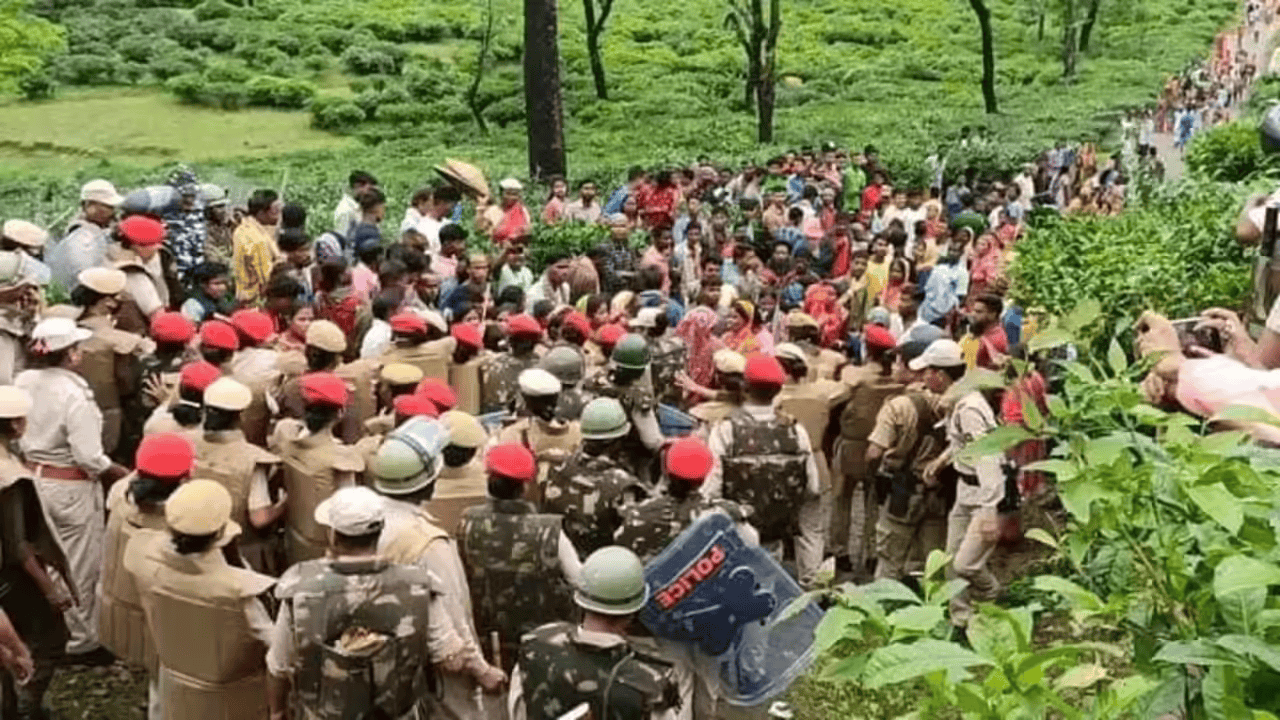Silchar’s proposed greenfield airport at Doloo tea estate faces strong opposition from a local advocacy group, urging relocation to the abandoned Kharil site. Concerns centre on the destruction of productive tea plantations, displacement of thousands of workers, and severe environmental impact. This contentious development highlights the critical balance between regional growth and the imperative for sustainable, equitable urban planning in Assam.
A significant debate has emerged in Assam concerning the proposed location of a new greenfield airport, with a prominent local advocacy organisation formally appealing to the nation’s leadership for a strategic relocation. The group’s memorandum, routed through local administrative channels, articulates profound environmental, social, and economic concerns regarding the chosen site at Doloo tea estate in Cachar. While acknowledging the strategic imperative of enhanced air connectivity for South Assam, the organisation contends that the selection of Doloo undermines the fundamental principles of inclusive and sustainable development, raising questions about potential undue influence in the decision-making process.
The core of the contention lies in the alleged destruction of a fully functional and productive tea plantation at Doloo. The advocacy group argues that the uprooting of millions of tea bushes and thousands of vital shade trees not only represents an irreparable ecological loss but also directly threatens the livelihoods of thousands of tea garden workers. This displacement, they assert, has rendered many workers jobless, plunging families into economic precarity. Such an outcome stands in stark contrast to the vision of creating eco-friendly, sustainable, and equitable cities, where development projects are expected to uplift, not displace, vulnerable communities.
Crucially, the Airports Authority of India (AAI) had initially identified multiple potential sites for the project, including both Doloo and the nearby Kharil tea estate. Despite Doloo’s ultimate selection, the advocacy group vehemently maintains that Kharil, an abandoned and sparsely inhabited tea estate, remains a far more suitable alternative. Having already undergone initial surveys and deemed feasible, Kharil presents significantly fewer social and ecological risks. Its utilisation would circumvent the need to destroy a thriving agricultural ecosystem and displace a settled workforce, thereby aligning more closely with environmentally responsible and socially just development practices.
Further deepening the controversy are allegations surrounding the land acquisition process at Doloo. The advocacy group claims that the uprooting of tea bushes occurred under heavy security presence, with legal provisions invoked despite widespread public resistance. This forceful acquisition, they argue, has led to a situation where displaced workers are now struggling to sustain their families, a direct challenge to the concept of equitable urbanisation. Moreover, a legal challenge to this land acquisition is currently pending before the Supreme Court, which has reportedly stayed further action on the site until a proper Environmental Clearance (EC) is obtained, underscoring the serious nature of the concerns raised.
The Environmental Impact Assessment (EIA) report prepared for the Doloo site has also come under severe criticism from the advocacy group, which labels it as “misleading and deceptive.” They allege that the report falsely claims public consent for the project and resolution of worker-related issues, failing to accurately reflect the ground reality. More critically, the group contends that the EIA report neglects to adequately address the significant ecological impact on Doloo Lake and the adjacent Barail Wildlife Sanctuary, both vital natural assets. Such alleged omissions raise serious questions about the transparency and integrity of the environmental assessment process, which is fundamental to ensuring zero net carbon and eco-friendly development.
With thousands of workers formally registering their objections to the project at Doloo, the collective voice of the affected community is clear. The advocacy group’s appeal to the nation’s leadership is a plea for a re-evaluation of priorities, urging the relocation of the airport to the Kharil tea estate. This move, they argue, would not only protect the vital interests of the tea industry and its workforce but also safeguard the region’s delicate environment. The ongoing conflict serves as a stark reminder of the complexities inherent in large-scale infrastructure projects and the critical importance of genuine stakeholder engagement, transparent processes, and an unwavering commitment to sustainable and equitable development that truly serves the larger interest of society.
Also Read : Chennai Airport Passengers Face Cab Overcharges Despite Free Terminal Pickups


